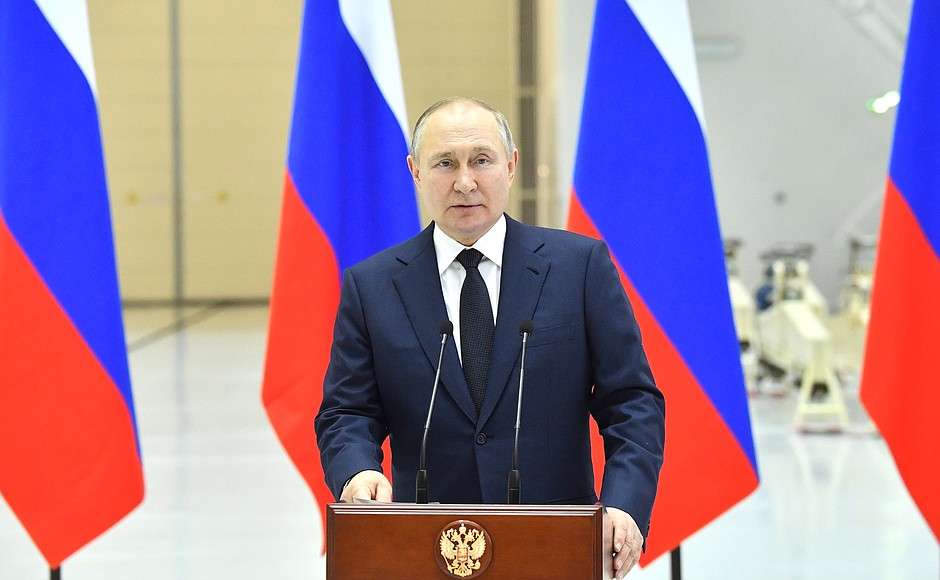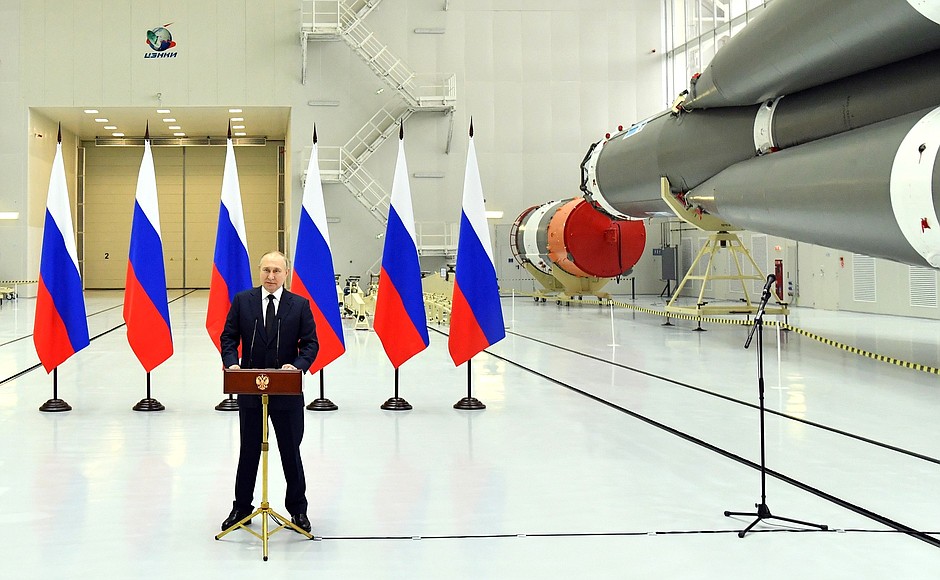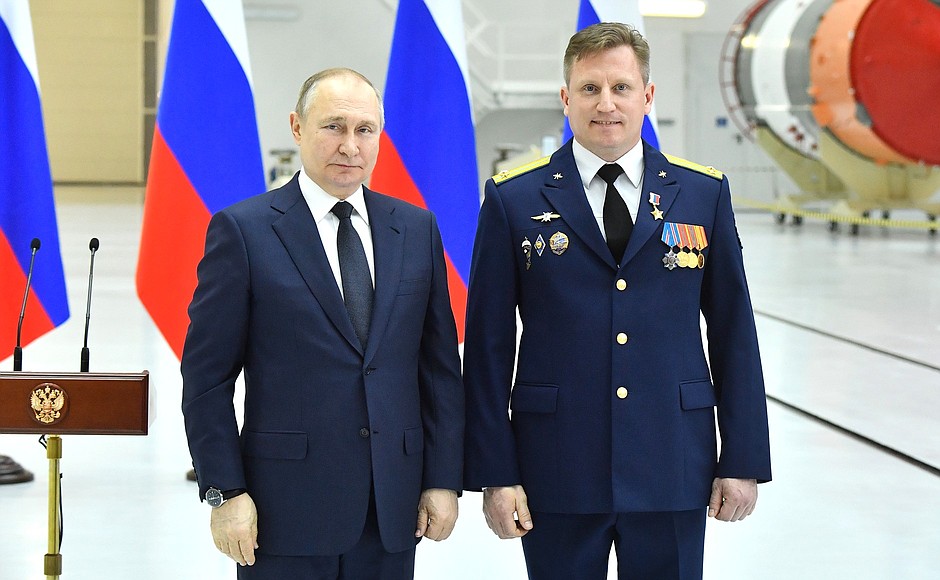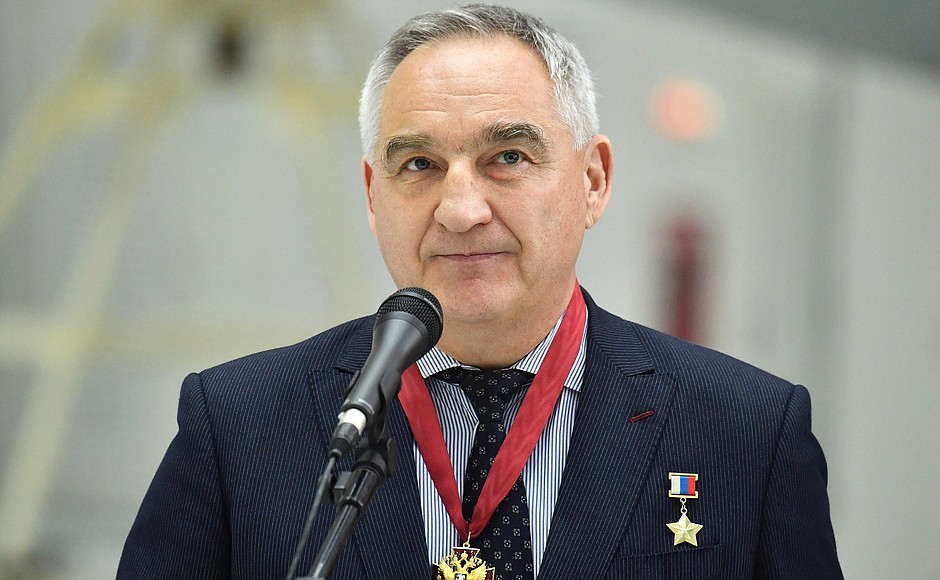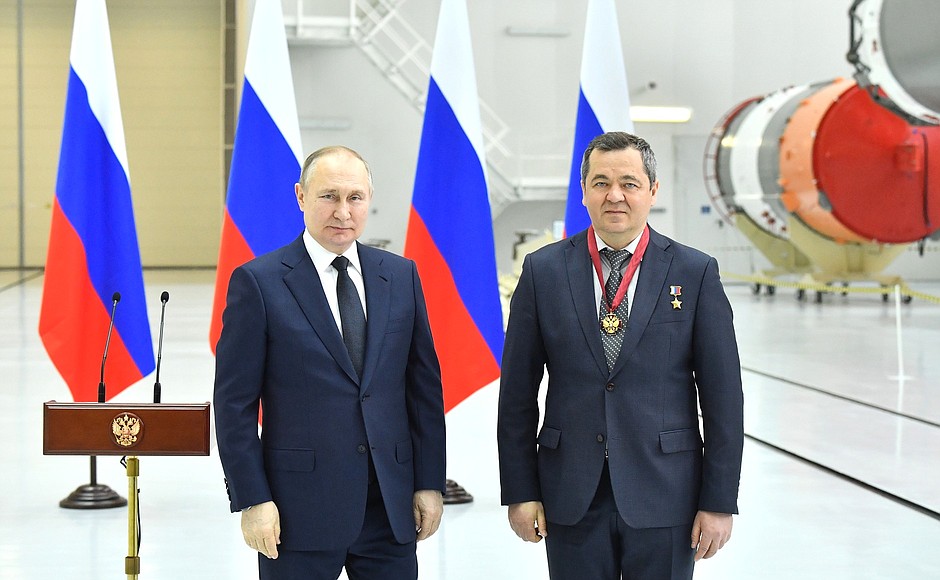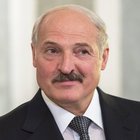Sergei Prokopyev, a cosmonaut and test pilot from the Yury Gagarin Research and Test Cosmonaut Training Centre, received the title of Hero of Russia and an honorary badge Pilot-Cosmonaut of Russia. Instructor and cosmonaut and test pilot Alexander Skvortsov and the Centre’s lead specialist Oleg Skripochka were awarded the Order for Services to the Fatherland, III degree.
President of the Republic of Belarus Alexander Lukashenko also attended the ceremony.
* * *
President of Russia Vladimir Putin: Good afternoon, friends, Mr Lukashenko.
More than 60 years ago, on April 12, 1961, Soviet officer Yury Gagarin performed the first space flight in history. We are marking Cosmonautics Day to commemorate his feat and this landmark achievement.
Each of us is experiencing special feelings today, including genuine pride for the generations that accomplished a grandiose technological breakthrough, and faith in the future, in our might and progressive development and confidence that we will certainly achieve all our goals. I am confident that this will be so.
I warmly congratulate all our citizens, the citizens of Russia and the citizens of Belarus, all our compatriots, cosmonauts and the staff of Vostochny Cosmodrome, active and retired workers of the rocket and space sector.
I would like to separately address and say a few warm words to service personnel of the Russian Aerospace Forces.
Space, air force, space force are closely interlinked. We know that our officers are currently involved in the special military operation in Donbass, Ukraine, and that they are assisting the people’s republics of Donbass. They are acting bravely, skilfully, effectively and with good results, as they use the most advanced types of weapons with unique and unprecedented specifications.
The discoveries and inventions of humankind’s greatest thinkers, our compatriots Tsiolkovsky, Korolev, Glushko, Chelomei and other outstanding Russian scientists and designers, the unparalleled work of teams from all over the Soviet Union, our engineers and workers are the main foundation of our achievements in addressing defensive tasks and developing civilian space technologies.
They worked for the country in the full sense of the word, they fought for their Fatherland at plants, factories and design bureaux, and they won the toughest race for leadership in outer space. They developed the first artificial space satellite, the first manned spacecraft and the first space station, and they also launched automatic probes to study the Moon and Mars.
It was a domestically built spacecraft that made the first ever landing on the incandescent surface of Venus. No other nation in the world has been able to develop such a technological solution to this day, or for that matter many other rocket and space technologies.
The generation of national rocket and space programme creators has left us not only immense technological achievements but also values that we look up to, even today, and examples of comradeship, audacity – in the finest sense of the word – willpower and courage, which unite and inspire us to this day. Our ancestors’ message to us is their urge to move forward, despite all challenges or outside attempts to hamper our advance.
We will certainly implement – consistently and in a persistent manner – all the plans we have mapped out. We will continue developing a new-generation transport spacecraft and space nuclear energy technologies, where undoubtedly, we have made a very good headstart and possess absolutely obvious advantages. We will resume the moon-exploration programme: I am referring to the [planned] launch of an autonomous craft, the Luna 25 robotised space system, from Vostochny Cosmodrome.
I would like to stress that we must successfully respond to space exploration challenges so as to be able to more effectively pursue national development goals here, on planet Earth, strengthen our security and technological sovereignty, and create advanced R&D in robotics, microelectronics, the environment, medicine, new energy, as well as navigation and communications.
For example, it is necessary to tap the potential of space information technologies at a new level to ensure further introduction of digital services into all sectors of the economy, state administration, education, healthcare, and everyday life. For this purpose, we intend to expand considerably the quantitative and qualitative potential of Russia’s satellite fleet under the Sfera programme.
As for Earth remote sensing, we have started a major project to manufacture and launch specialised spacecraft. To do this, we have pooled the scientific and industrial potential of Russia and the leading Belarusian companies, which have been renowned since Soviet times for their skills in producing precision equipment and the most complex optoelectronic and radio engineering systems.
Jointly creating an infrastructure that can guarantee the Union State independent access to space will be yet another important, signature dimension of our collaboration.
Very soon, Belarusian workers and specialists, companies and enterprises, will be able to contribute to developing the city of Tsiolkovsky and Vostochny Cosmodrome. The State Duma has already approved legislative amendments to this effect, and once the Federation Council reviews them, which will also happen quite soon, I will immediately sign them into law.
There is another decision I wanted to mention specifically. I am asking Roscosmos to arrange the necessary training and organise a flight of a Belarusian national into space on a Russian spacecraft. We discussed this with Mr Lukashenko a long time ago. I am certain that this will be yet another major milestone in our cooperation in space exploration.
Friends,
It would not be an exaggeration to say that being a cosmonaut is a heroic profession, since every spaceflight is always about accomplishing a feat, of being a pioneer, penetrating the unknown and reaching the limits of human capabilities, while performing the most challenging research and engineering tasks. Of course, people who demonstrate personal courage, strong spirit, boldness, a high level of competence and successfully deliver on a mission that matters so much for our country deserve the highest decorations.
It is a pleasure for me to present these decorations to our cosmonauts, especially since we have been waiting for so long to hold this ceremony.
Sergei Prokopyev is hereby awarded the Hero of the Russian Federation title and the honorary title Pilot-Cosmonaut of the Russian Federation. During his first space expedition, he carried out two spacewalks, including an extremely challenging inspection of the spacecraft’s outer covering, writing a page into the history of world cosmonautics. As far as I know, there were no proper fastening devices. How this was done is of course a separate story.
Alexander Skvortsov and Oleg Skripochka carried out three long orbital missions each. Through the honest and responsible service to their Motherland they made a substantial contribution to developing manned spaceflight programmes and Russia’s role in them, enhanced our country’s standing. For that, they receive the Order for Services to the Fatherland, III degree.
Once again, I would like to offer you my greetings on this holiday, friends, and congratulate our cosmonauts on receiving these high decorations.
Let us move on with the ceremony.
Sergei Prokopyev: Mr President, colleagues, employees of Vostochny Cosmodrome,
Thank you for the high praise not only of my work but also of the work done by hundreds of teams and thousands of people involved in manned space flights. I dedicate this decoration to my family, my wife, my friends and my mentors.
I want to say that our people have always been proud of Soviet and Russian achievements in space exploration. Cosmonauts always seek to rise to the standard of our ancestors and predecessors. We want our people and our country to continue being proud of the Russian space industry.
I want to thank the Cosmonaut Training Centre that employs unique specialists, the Mission Control Centre, the Centre for Operation of Space Ground-Based Infrastructure, all designers and engineers involved in creating space equipment, and all those who have always held the banner of Russian space exploration at the highest world level.
In conclusion, I want to say that I am proud to spearhead the Russian Federation’s programme of manned space flights and am ready to devote all my energy to this endeavour.
Happy holiday to everyone!
I serve Russia!
Alexander Skvortsov: Good afternoon, friends,
I also want to wish everyone a happy holiday and express gratitude for this assessment of our work. I fully support what Sergei Prokopyev has said.
But I want to perform an honorary mission. Before a space mission, each crew is allowedto take along something precious and valuable for it. My crew took the Victory Banner.
Today is Cosmonautics Day, and quite soon we will mark Victory Day. This banner was with us in space for six months, and we brought it back to Earth. We celebrated Victory Day with this banner, paying tribute to our great-grandfathers, grandfathers and fathers who fought against Nazi invaders and Nazism. There is a stamp on this banner, which confirms that it has really been in space at the International Space Station. There is also a photograph to this effect.
Allow me to ask your permission, Mr President, to attend to the wish of my superiors, Roscosmos, the cosmonaut team, and all those involved in space activities, and ask you to hand this banner to the commander of the ongoing special military operation and wish all those participating in it at this moment that the word “victory” would be said as often as possible as they perform their missions.
Let me take it with me now, Mr President, and I will hand it over after the awards ceremony.
Thank you.
